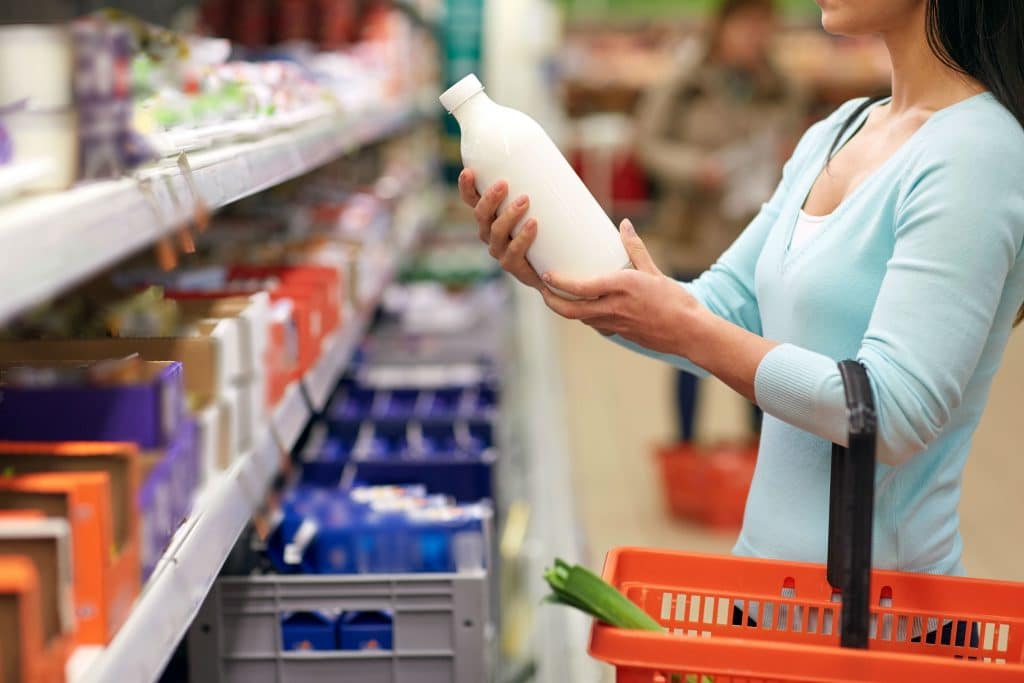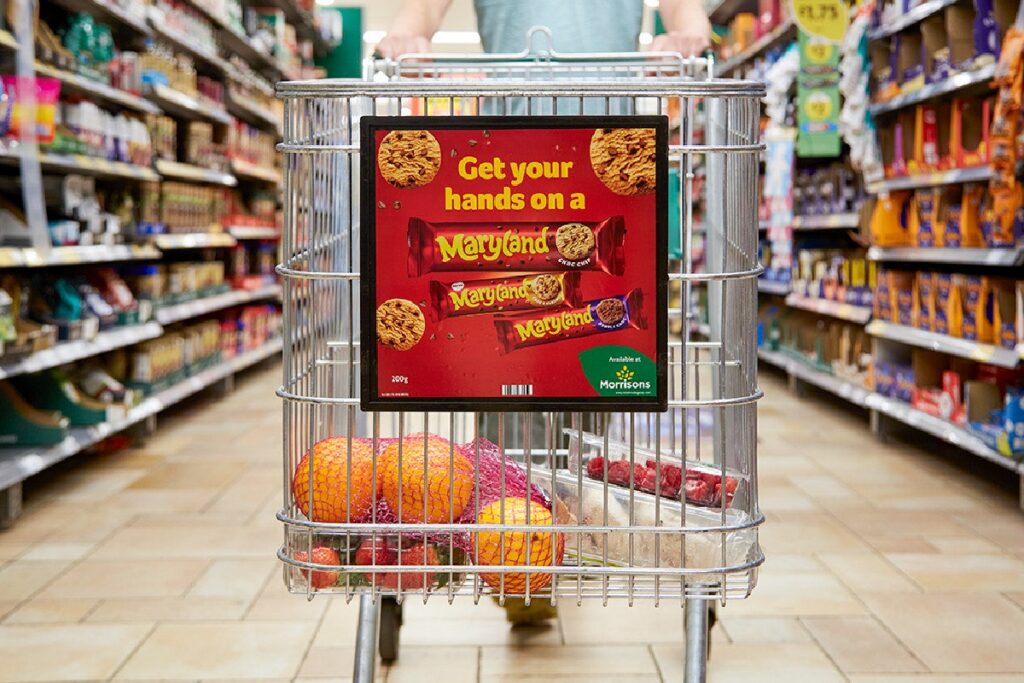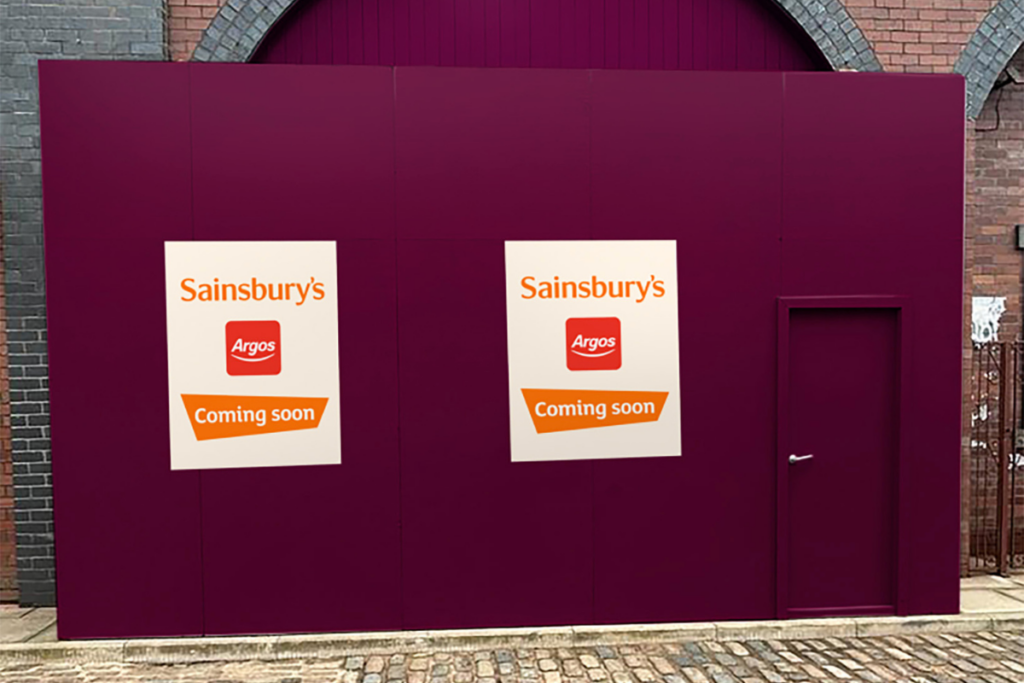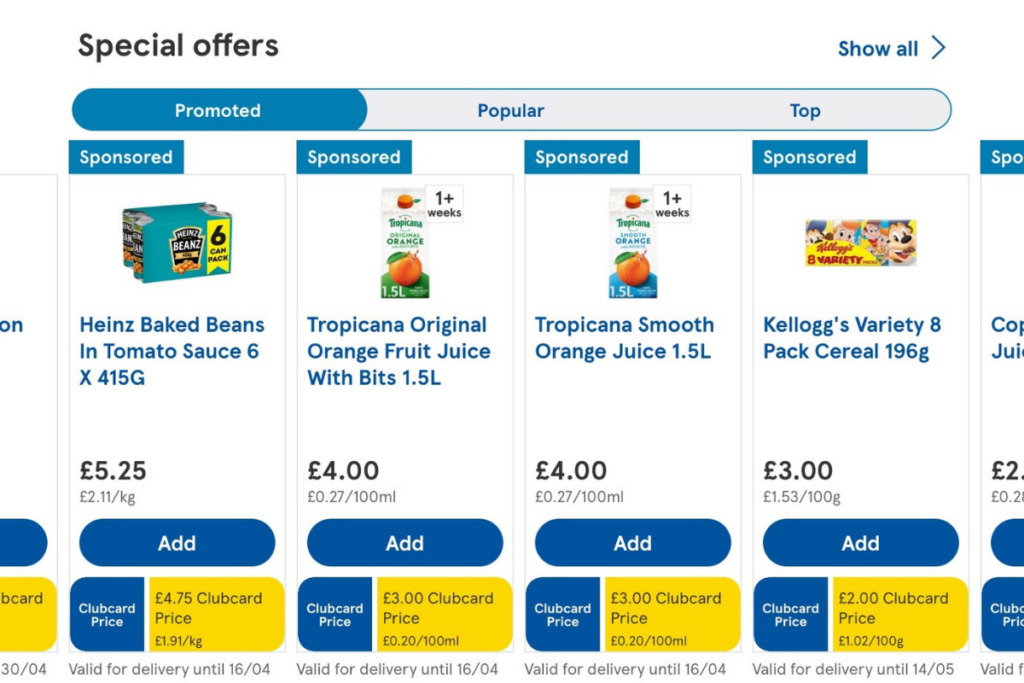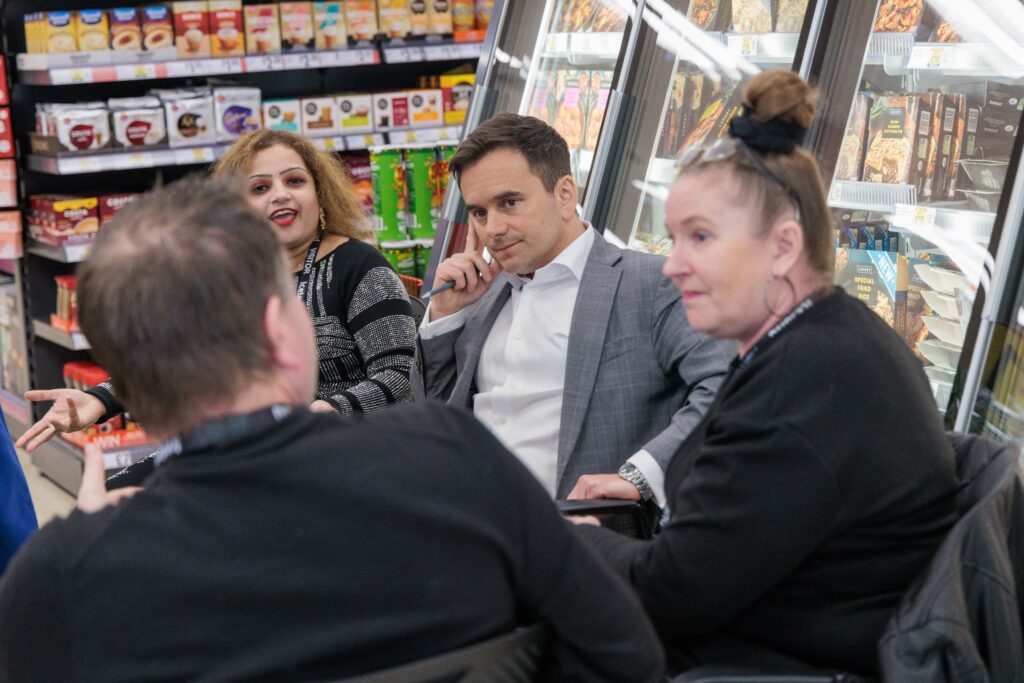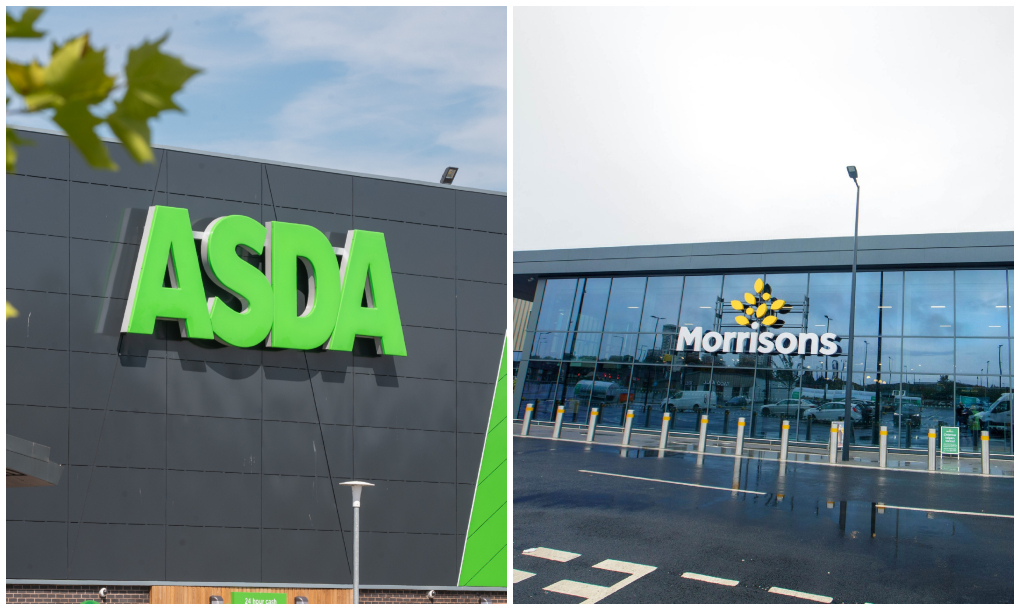// UK grocery sales slowed to 0.5% year-on-year during the 12 weeks to December 1
// Black Friday gave supermarkets only a limited boost as shoppers delayed Christmas prep
// In terms of market share, Lidl and Aldi were the quarter’s winners while the Big 4 came under pressure
Black Friday gave supermarkets only a limited boost as shoppers delayed their Christmas preparations amid the uncertainty of the General Election, new market share data shows.
Sales growth at the UK’s grocers slowed to 0.5 per cent year-on-year during the 12 week period ending December 1, with consumers making one less visit to the shops on average than this time last year, Kantar Worldpanel said.
Amid the uncertainty of the election, a lacklustre Black Friday and a wet autumn, shoppers have been delaying their Christmas preparations and are waiting to stock up on festive supplies, the figures show.
READ MORE: Grocery sales slow ahead of peak Christmas season
Sales of Christmas puddings and seasonal biscuits were down 16 per cent and 12 per cent in the past four weeks compared with this time last year.
However, consumers spent £28 million on advent calendars, up one per cent, while sales of fresh and frozen party food rose seven per cent.
The number of people claiming to take advantage of Black Friday this year fell to 53 per cent from 57 per cent last year, with signs of “promotion fatigue” among consumers, an increased scepticism regarding the value of the deals on offer, and some retailers pulling back from the day all together.
The event is less significant in the grocery sector and this year only five per cent of Black Friday deal-hunters bought something from a grocer.
“We’re yet to see consumers ramp up their spending in the run-up to Christmas and, as anticipated, Black Friday only brought a limited boost for the grocers,” Kantar head of retail insight Fraser McKevitt said.
Lidl and Aldi were the quarter’s winners, with sales growth of 9.3 per cent propelling Lidl to a new record high market share of 6.1 per cent – giving it parity with the Co-op.
Aldi’s year-on-year growth of 6.2 per cent, worth £129 million in additional sales, takes its market share to eight per cent.
The four largest grocers came under further pressure, with their collective market share dropping to 67.7 per cent from 69.1 per cent this time last year.
Tesco was the best performing of the largest grocers over the past 12 weeks despite sales falling by 0.8 per cent.
Its market share dipped 0.3 percentage points year-on-year to 27.3 per cent, but had the best month-on-month improvement of the Big 4 when compared to November’s reading of 27 per cent.
Sales at Sainsbury’s were down 1.1 per cent, bringing its year-on-year market share down 0.3 percentage points to 15.7 per cent.
Meanwhile Asda sales dropped by 1.9 per cent and Morrisons dropped 2.9 per cent, prompting both retailers to see market share decline 0.4 percentage points to 14.6 per cent and 10.1 per cent respectively.
Ocado continued to be the fastest-growing grocer, with sales 13.7 per cent higher than this time in 2018.
Separate data from Nielsen also showed an “unexpectedly slow” start to the festive period, with sales growing by just 0.2 per cent in the last four weeks.
“Though it has been a disappointing start to Christmas, we must remember that around one third of shoppers never intended to start their Christmas grocery shopping until December,” Nielsen head of retail insight Mike Watkins said.
“A late surge in sales is quite possible this year as Christmas Eve falls on a Tuesday.”
with PA Wires
Click here to sign up to Retail Gazette‘s free daily email newsletter

